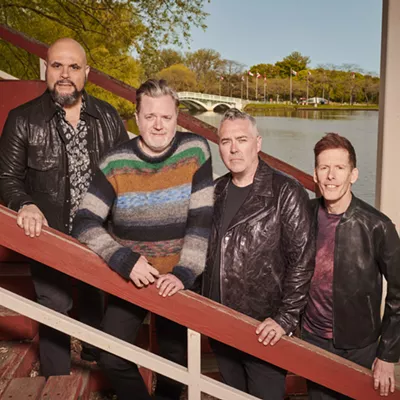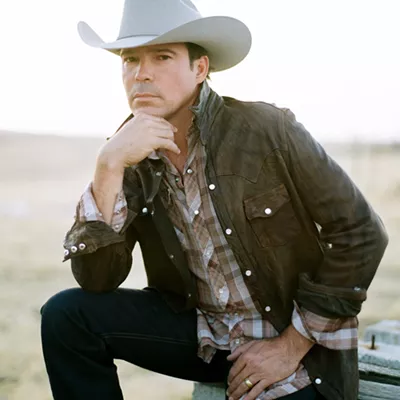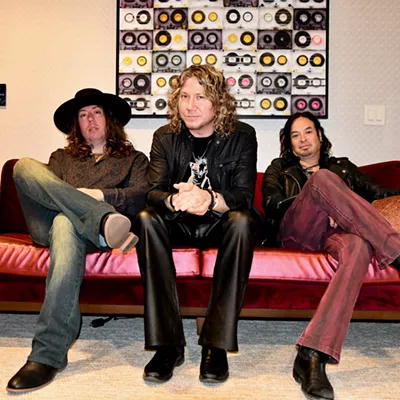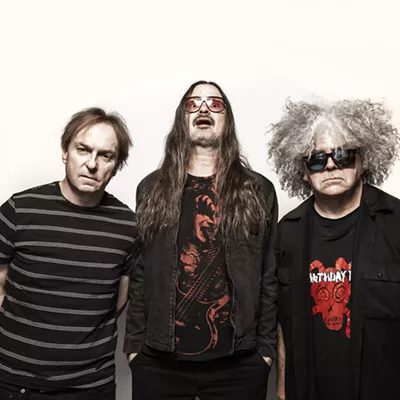It's always exciting when an artist who's been recording and performing over a span of years is now entering a new creative era, and is just beginning to peak. After a long stint with the solid, if unremarkable, goth/shoegaze band Blind Divine and the detailed ethereal refinement of the far more interesting Crystal Radio, internationally acclaimed visual artist Daniel Martin Diaz, along with partner/director Amelia Poe and their adult son Damian Diaz return with a new band, the almost-free form, self-consciously experimental rock band Trees Speak. The resulting self-titled album is seductively hypnotic and masterful in its focus.
Over 33 brief tracks, the reference points of Trees Speak are fairly obvious—the Krautrock of Can and NEU!, the Berlin-era avant-pop and ambient experiments of David Bowie and Brian Eno and even Miles Davis' Bitches Brew (which, like Can and Trees Speak, was basically composed in post-production, editing down long improvisational recordings into more coherent songs). There are also echoes of these acts' successors, like Stereolab and BEAK>. So yes, this album is a vanguard, boundary pushing work, if it was 1978 or so, not 2016.
A year or two ago, I had an eye-opening conversation with a very talented young local musician—he was maybe 24 at the time. His point was that for his entire life, he'd been inundated with the idea that Krautrock, post-punk and other similar music was the alpha and omega of pop's cutting edge. And if so many artists have been using these subgenres as a reference point for three to four decades whenever seeking to break new ground creatively, then this stuff is not avant-garde or anything approaching it. It's mainstream. He was absolutely right—the music had become just another example of a kind of baby boomer cultural fascism.
But where does this leave Trees Speak? Well, it allows the band's record to be judged on the merits of its songs and performances and not whether or not it's creating a new genre. And that's just fine, because this band—which, judging from the credits listed online, has significantly more input from Damian Diaz than Blind Divine or Crystal Radio did—is compelling and distinctive.
Trees Speak is a long, long record, hovering around a two-hour running time. But repeated listens are handsomely rewarded; for all the droning squall of these mostly-instrumental tracks, the group's delivery is infused with a warm, inviting atmosphere and melodies that stick long after the songs end.
Three distinctive sections emerge in the album's sequencing—the first several songs are tethered by the signature motorik beat of NEU! with abrasive synths and a theremin providing layers of texture. The pace slows and the mood dampens during the sleepy, shoegaze-y middle section, while the conclusion of Trees Speak adds mournful, lonely space-rock—think Pink Floyd's Meddle—to the alternating ambient and noisy characteristics. In fact, this record unfolds gradually like one long piece, which considering its improvisational beginnings, seems appropriate and results in an intimate, womb-like atmosphere and an unforgettable listen.












